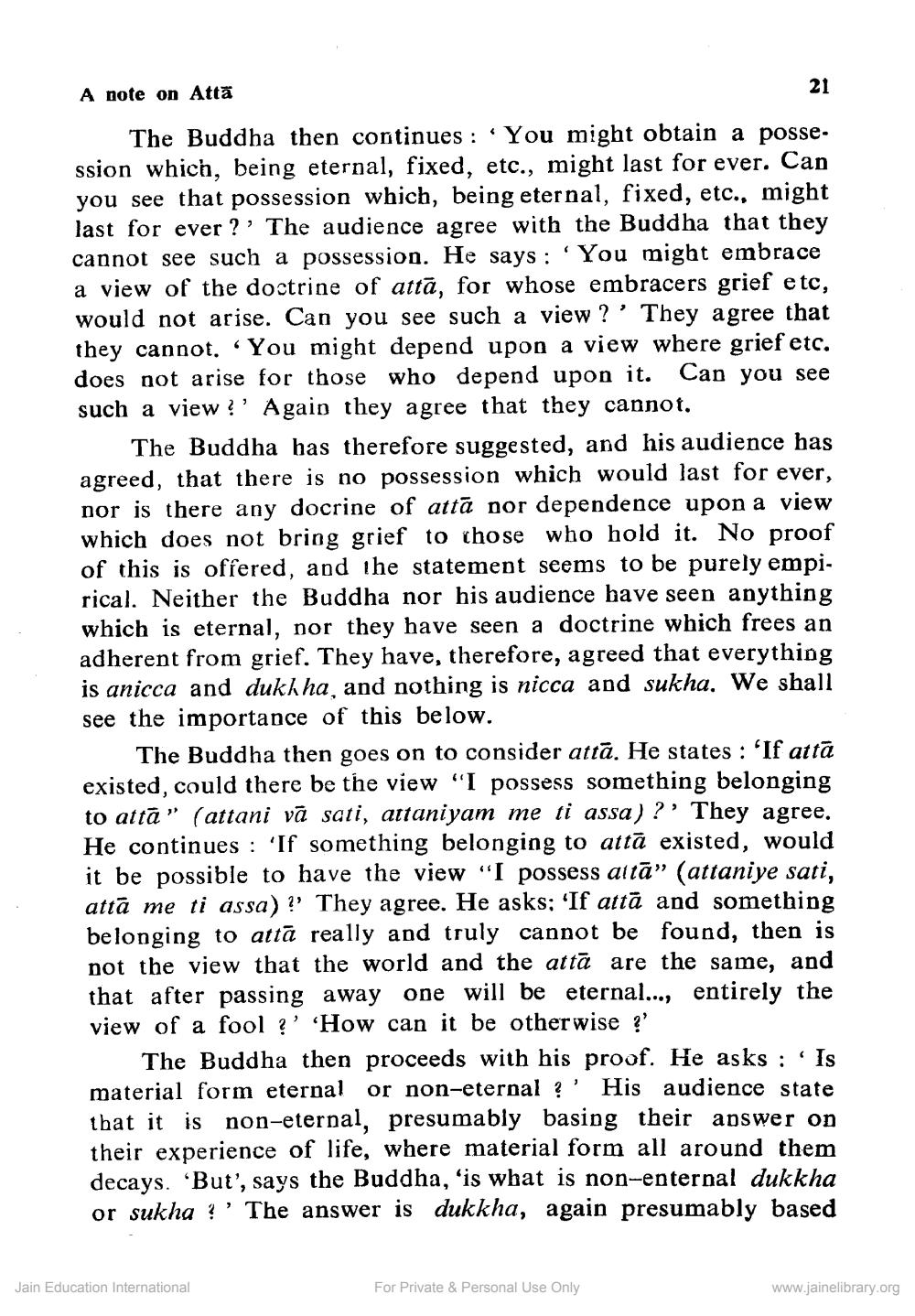________________
A note on Atta
21
The Buddha then continues : 'You might obtain a posse. ssion which, being eternal, fixed, etc., might last for ever. Can you see that possession which, being eternal, fixed, etc., might last for ever?' The audience agree with the Buddha that they cannot see such a possession. He says: 'You might embrace a view of the doctrine of attā, for whose embracers grief etc, would not arise. Can you see such a view ?' They agree that they cannot. “You might depend upon a view where grief etc. does not arise for those who depend upon it. Can you see such a view?' Again they agree that they cannot.
The Buddha has therefore suggested, and his audience has agreed, that there is no possession which would last for ever, nor is there any docrine of attā nor dependence upon a view which does not bring grief to those who hold it. No proof of this is offered, and the statement seems to be purely empirical. Neither the Buddha nor his audience have seen anything which is eternal, nor they have seen a doctrine which frees an adherent from grief. They have, therefore, agreed that everything is anicca and dukk ha, and nothing is nicca and sukha. We shall see the importance of this below.
The Buddha then goes on to consider attā. He states : 'If attā existed, could there be the view "I possess something belonging to attā” (attani vā sati, attaniyam me ti assa)?' They agree. He continues : 'If something belonging to attā existed, would it be possible to have the view "I possess attā” (attaniye sati, attā me ti assa)? They agree. He asks: 'If attā and something belonging to attā really and truly cannot be found, then is not the view that the world and the attā are the same, and that after passing away one will be eternal..., entirely the view of a fool ?' 'How can it be otherwise ?
The Buddha then proceeds with his proof. He asks : ' Is material form eternal or non-eternal ?' His audience state that it is non-eternal, presumably basing their apswer on their experience of life, where material form all around them decays. "But', says the Buddha, 'is what is non-enternal dukkha or sukha ?' The answer is dukkha, again presumably based
Jain Education International
For Private & Personal Use Only
www.jainelibrary.org




